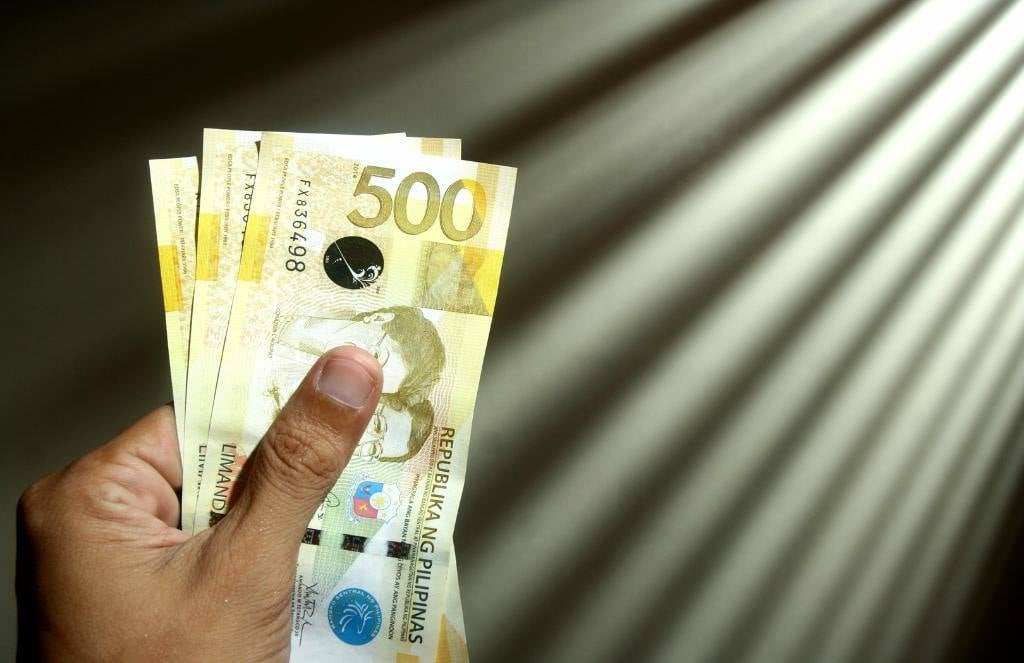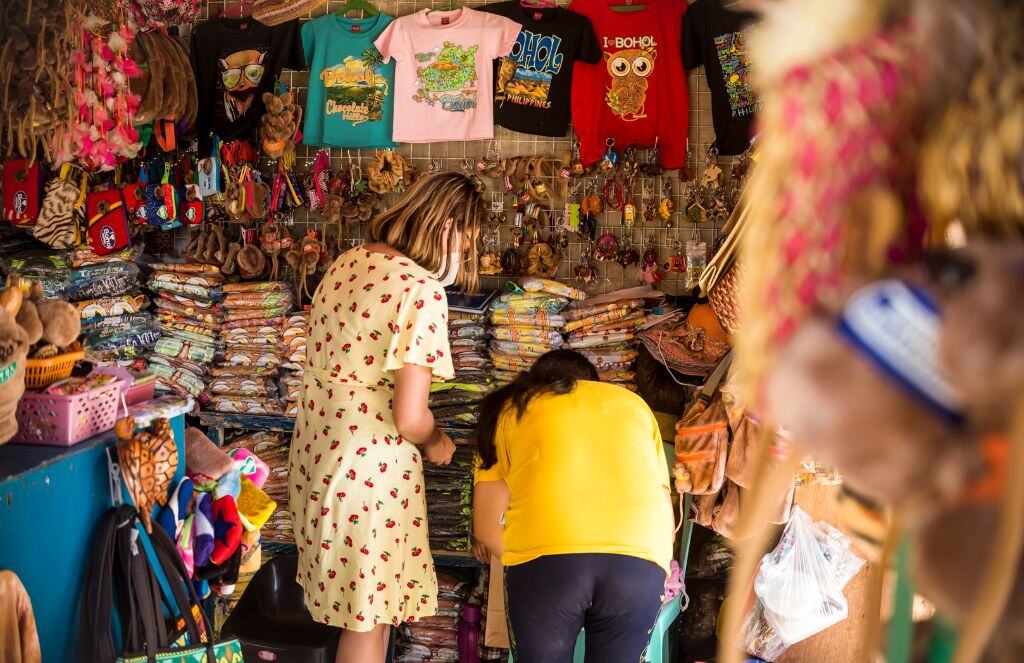Tipping in the Philippines – Is it Customary to Tip in the Philippines?
As you embark on a journey through the breathtaking landscapes of the Philippines, you'll experience rich culture, mouthwatering cuisine, and famous Filipino hospitality. But when it comes to showing appreciation for that hospitality, is it appropriate to tip? At Crown Currency Exchange, we've put together this guide to tipping in the Philippines, making it easier to navigate certain social situations and ensure you have a truly memorable holiday.
What is the Tipping Culture in the Philippines?
Tipping is not as common in the Philippines as it is in some other countries, particularly in Western cultures, where it is ingrained in the service industry. However, tipping is becoming more prevalent in the Philippines, especially in touristy locations and upscale establishments.
Tipping in the Philippines varies depending on region, too, and in metropolitan areas like Manila and Cebu City, tipping is a more common practice due to the influence of both international tourism and cultural diversity.
Why is Tipping Uncommon in the Philippines?

The main reason why tipping is uncommon in the Philippines compared to some other countries is because Filipino culture places a strong emphasis on hospitality and generosity. As such, showing appreciation for good service is often expressed verbally rather than with monetary tips.
Unlike many Western countries where service workers rely heavily on tips to supplement their income, labour laws and employment practices in the Philippines also ensure that workers receive fair wages and benefits. This, paired with a lower cost of living, means there's less reliance on tips as an additional source of income.
When Should You Consider Leaving a Tip?

As we mentioned above, tourism and cultural influence have meant that, while tipping isn't expected in the Philippines, it is becoming increasingly common to show appreciation with tips. As such, here are some instances where tipping would be considered appropriate:
Tipping Hotel Staff
Tipping certain members of hotel staff, such as housekeeping and concierge, is appreciated in the Philippines, and the amount you tip will vary depending on who you're tipping.
What is a Fair Tip for Hotel Staff in the Philippines?
For instance, a suitable tip for porters would be around ₱20-50 PHP ($0.50-$1.30 AUD) per bag. For housekeeping staff, you should leave tips for them to collect daily, averaging around ₱50-100 PHP ($1.30-$2.75 AUD).
Tipping Waiting Staff
In upscale restaurants or dining establishments, leaving a tip for the restaurant service crews is greatly appreciated. The only time you don't need to worry about tipping after you've eaten is if there has been a service charge added to the bill already, and in this instance, you can tip at your own discretion.
What is a Fair Tip for Waiting Staff in the Philippines?
Generally speaking, a tip of around 10% of the total bill is acceptable for wait staff. So, if you spend ₱600 PHP ($16.50 AUD) on your meal, a tip of ₱60 PHP ($1.60 AUD) would be suitable.
Tipping Tour Guides
It is also appreciated to tip tour guides in the Philippines, especially if you received a private tour or an excursion leader designed a tour catered to your specific interests.
What is a Fair Tip for Tour Guides in the Philippines?
A tip of around ₱200-500 PHP ($5.50-$13 AUD) per person would be an appropriate tip for a tour guide in the Philippines. This means a tour with an audience of six people should tip around ₱2000 PHP ($55 AUD) collectively.
Tipping Taxi Drivers
While tipping taxi drivers in the Philippines is not mandatory, it is nice to show your appreciation by tipping them a few Philippine Pesos, especially if they have gone out of their way to assist you.
What is a Fair Tip for Taxi Drivers in the Philippines?
Rounding up the total fare to the nearest Philippine Peso is common practice when tipping a taxi driver in the Philippines, but you can also add an extra 10% on top of this if you feel you received excellent service.
Philippines Tipping Etiquette: How to Give a Tip?

Since tipping isn't the Philippines' cultural norms, it's important that you take this into consideration when it comes to tipping etiquette. The best thing to do is hand your tip directly to the service provider, doing so discreetly and verbalising your thanks at the same time.
Should you prefer, you can also leave the tip behind for the service provider to find once you've left. This could be on the table in a restaurant, in an envelope for housekeeping staff, or in a tip jar if there is one provided.
It's also important that you don't make a big deal of the fact you're leaving a tip. Again, since Filipino culture doesn't focus heavily on tipping, acting loudly when tipping can seem rude or even make the person receiving the tip feel awkward or inferior.
Top Tip: The best way of tipping in the Philippines is using cash, as this ensures it goes directly to the intended recipient. You can get the best cash rates on AUD to PHP here.
Are There Any Cases Where You Should Avoid Tipping in the Philippines?
There are some instances where you don't need to worry about tipping in the Philippines, not because it will cause any offence, but because doing so isn't expected or necessary.
One instance is local markets or shops, where there is usually a bartering system or fixed price system in place. Offering a tip on top of an agreed price is likely to result in confusion, so it's best to avoid tipping here.
You also don't need to tip when using public transport, as fares are fixed and bus drivers are unlikely to provide any additional service, such as carrying your baggage into your hotel. Likewise, you don't need to tip in fast food restaurants or any other eating establishment with counter service.
Heading to the Philippines? Get the Best Rates of Philippine Pesos at Crown Currency
It pays to be as organised as possible when travelling, so make sure you have plenty of cash for tipping by visiting Crown Currency Exchange, where you'll find the best rates on AUD to PHP with zero commission fees and no hidden costs. You can find your nearest Crown Currency Exchange store here!
FAQs
What is the Tipping Culture in the Philippines?
Tipping is not as common in the Philippines as it is in some other countries, particularly in Western cultures, where it is ingrained in the service industry. However, tipping is becoming more prevalent in the Philippines, especially in touristy locations and upscale establishments.
Tipping in the Philippines varies depending on region, too, and in metropolitan areas like Manila and Cebu City, tipping is a more common practice due to the influence of both international tourism and cultural diversity.
Why is Tipping Uncommon in the Philippines?
The main reason why tipping is uncommon in the Philippines compared to some other countries is because Filipino culture places a strong emphasis on hospitality and generosity. As such, showing appreciation for good service is often expressed verbally rather than with monetary tips.
Unlike many Western countries where service workers rely heavily on tips to supplement their income, labour laws and employment practices in the Philippines also ensure that workers receive fair wages and benefits. This, paired with a lower cost of living, means there's less reliance on tips as an additional source of income.
When Should You Consider Leaving a Tip?
As we mentioned above, tourism and cultural influence have meant that, while tipping isn't expected in the Philippines, it is becoming increasingly common to show appreciation with tips. As such, here are some instances where tipping would be considered appropriate:
Tipping Hotel Staff
Tipping certain members of hotel staff, such as housekeeping and concierge, is appreciated in the Philippines, and the amount you tip will vary depending on who you're tipping.
What is a Fair Tip for Hotel Staff in the Philippines?
For instance, a suitable tip for porters would be around ₱20-50 PHP ($0.50-$1.30 AUD) per bag. For housekeeping staff, you should leave tips for them to collect daily, averaging around ₱50-100 PHP ($1.30-$2.75 AUD).
Tipping Waiting Staff
In upscale restaurants or dining establishments, leaving a tip for the restaurant service crews is greatly appreciated. The only time you don't need to worry about tipping after you've eaten is if there has been a service charge added to the bill already, and in this instance, you can tip at your own discretion.
What is a Fair Tip for Waiting Staff in the Philippines?
Generally speaking, a tip of around 10% of the total bill is acceptable for wait staff. So, if you spend ₱600 PHP ($16.50 AUD) on your meal, a tip of ₱60 PHP ($1.60 AUD) would be suitable.
Tipping Tour Guides
It is also appreciated to tip tour guides in the Philippines, especially if you received a private tour or an excursion leader designed a tour catered to your specific interests.
What is a Fair Tip for Tour Guides in the Philippines?
A tip of around ₱200-500 PHP ($5.50-$13 AUD) per person would be an appropriate tip for a tour guide in the Philippines. This means a tour with an audience of six people should tip around ₱2000 PHP ($55 AUD) collectively.
Tipping Taxi Drivers
While tipping taxi drivers in the Philippines is not mandatory, it is nice to show your appreciation by tipping them a few Philippine Pesos, especially if they have gone out of their way to assist you.
What is a Fair Tip for Taxi Drivers in the Philippines?
Rounding up the total fare to the nearest Philippine Peso is common practice when tipping a taxi driver in the Philippines, but you can also add an extra 10% on top of this if you feel you received excellent service.
Philippines Tipping Etiquette: How to Give a Tip?
Since tipping isn't the Philippines' cultural norms, it's important that you take this into consideration when it comes to tipping etiquette. The best thing to do is hand your tip directly to the service provider, doing so discreetly and verbalising your thanks at the same time.
Should you prefer, you can also leave the tip behind for the service provider to find once you've left. This could be on the table in a restaurant, in an envelope for housekeeping staff, or in a tip jar if there is one provided.
It's also important that you don't make a big deal of the fact you're leaving a tip. Again, since Filipino culture doesn't focus heavily on tipping, acting loudly when tipping can seem rude or even make the person receiving the tip feel awkward or inferior.
Top Tip: The best way of tipping in the Philippines is using cash, as this ensures it goes directly to the intended recipient. You can get the best cash rates on AUD to PHP here.
Are There Any Cases Where You Should Avoid Tipping in the Philippines?
There are some instances where you don't need to worry about tipping in the Philippines, not because it will cause any offence, but because doing so isn't expected or necessary.
One instance is local markets or shops, where there is usually a bartering system or fixed price system in place. Offering a tip on top of an agreed price is likely to result in confusion, so it's best to avoid tipping here.
You also don't need to tip when using public transport, as fares are fixed and bus drivers are unlikely to provide any additional service, such as carrying your baggage into your hotel. Likewise, you don't need to tip in fast food restaurants or any other eating establishment with counter service.






.png)
